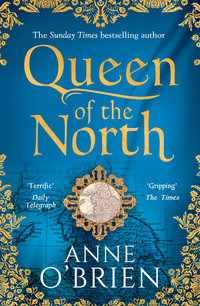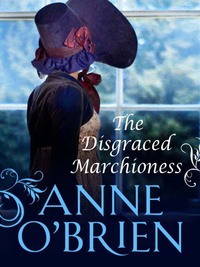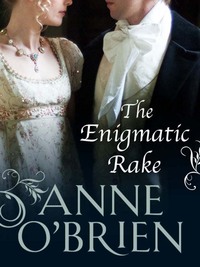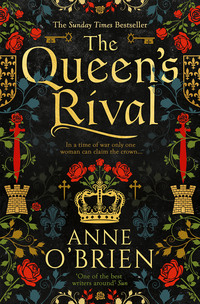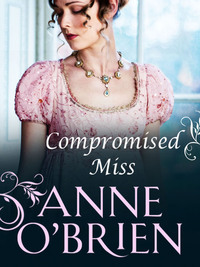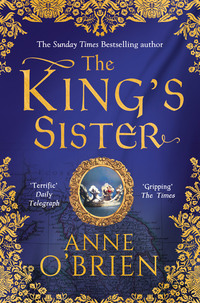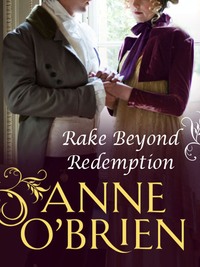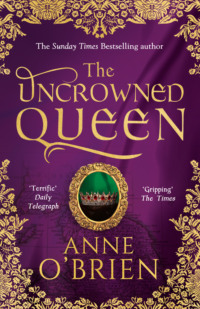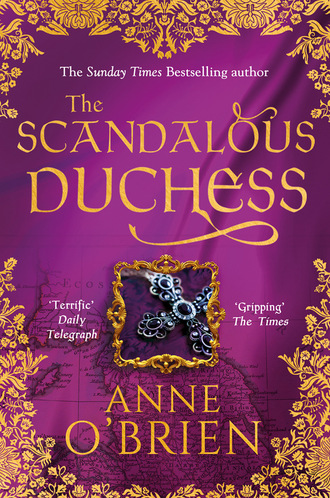
Полная версия
The Scandalous Duchess
Some said he had his own ambitions for the English crown, for no man of sense would place a wager on the longevity of either the King or the Prince. If the worse came to the worst, better an able man at thirty-two years and in his prime to wear the crown than a child of fewer years than fingers of one hand.
Looking at him now, at the authority inherent in his stance from his ordered hair to the fine leather of his boots, I wondered where his ambitions did lie. I did not know.
‘The situation in Aquitaine and Gascony rests on a knife-edge,’ he continued, as if picking up my thoughts. ‘The progress of the English troops, without direct leadership—it’s not good. I’m going to Kennington to talk with the Prince. I’ll need to stay if it’s decided that I lead an expedition. We badly need a victory against France, and it may be that Parliament must be summoned to finance such a lengthy campaign. It will not be popular, even though a victory’s in everyone’s mind…’
He was already moving towards the door, as if the burden of these decisions was driving him into action.
‘I’ll send word when I know my future movements.’
So, after shaking my world into disorder, he would leave without making any decision about me. My mind leaped crossly with indecision.
I really need to know where I stand.
It is not appropriate for you to trouble him with your inconsequential needs when the government of England rests on his shoulders.
I followed him to the door.
‘My lord?’
He turned his head, his hand on the latch.
‘Lady Katherine.’ Impatient to be gone, yet as he took in my appearance not without a glint in his eye. ‘Still garbed like a winter raven, I see.’
‘And, as a widow, will continue to be until the year of my mourning is ended,’ I replied tartly.
‘As you will, lady.’
Oh, he was preoccupied, and I bristled beneath my widow’s black. If the royal duke had been suffering yesterday from a blast of inappropriate lust for my person, it had been a remarkably short-lived one. Which was hardly flattering to me.
‘Lady Katherine…?’ His brows flattened. ‘My time is precious.’
So I asked him one question. The one question that had troubled me, to which I needed to have the answer. Not why he had impugned my honour. Not if he would consider a position for me—a respectable position—in the household of his new duchess, or even an inferior position in one of his other establishments. But the question that had teased my female interest.
‘My lord, why did you laugh at me yesterday? Was it all a piece of mockery?’
For if he had been amused, perhaps his intent had been to disconcert me, simply to see what a respectable widow, given the chance to become an unrespectable whore, would say. I could not believe him guilty of such dishonour, yet there had to be a reason that I could not see.
‘Did my discomfiture amuse you?’ I repeated.
He seemed to consider this for an inordinate length of time. Then, when his stare had disconcerted me so that my cheeks were flushed the pink of summer eglantine: ‘Amuse me?’ He shook his head, his mouth settling in a wry twist. ‘I was not amused at all.’ There was no laughter in him today, rather a lick of temper.
‘You laughed at me, my lord.’
‘Then I must ask your pardon, Lady Katherine.’ It did not sound like an apology. ‘If it was laughter, it was because it seemed to me impossible that it should happen twice in a lifetime.’
‘What should? What should not happen twice?’ I asked, as confused as ever, refusing to be intimidated by that penetrating regard.
His hand fell from the latch and he turned to face me fully as he lowered his voice. At least he had the consideration to do that.
‘That the woman at whose feet I would kneel in knightly adoration should refuse me outright.’
‘My lord…!’
I simply did not know how to respond as, cursed with fair skin, my face flamed even brighter. I was saved from further embarrassment only when William Parr pushed open the door to appear behind the Duke’s shoulder.
‘Your escort is ready, my lord,’ the squire advised.
‘One moment, if you will.’
But Will Parr, well used to the Duke’s manner, persisted. ‘Forgive me, my lord. A message has just been delivered, that the King too will travel to Kennington. He requests that you accompany him.’
‘Of course. I’ll come now.’
He held out his hand to me, the jewels stitched on the cuff of his glove glinting, leaving me with no response but to put my hand there on the costly leather. With a curt little bow, he touched his lips to my fingers.
‘It would be unforgivable of me to make you an object of mockery, Madame de Swynford. What it would please me to do is to put the light back into your eyes.’
And then I was left staring at his back.
He had made no decision on my future at all, and I had not asked him. How could I when he had clearly pushed me to the back of his busy mind? It might be a superbly romantic conception to serve me unto death, but only when the Duke considered that he had the time to encompass it.
We took the children to watch the departure from the steps that led down from the Great Hall into the inner courtyard. Since the Duke would travel by road to Westminster and then on from there to the Prince’s palace at Kennington south of the Thames, rather than travelling by river the whole way, the great portcullis had been raised. The gates were opened and the courtyard thronged with horses and liveried servants in the Lancaster colours of blue and white. I lifted Henry in my arms so that he could see the Duke swing into the saddle of his favourite bay stallion. The escort fell into formation.
Without doubt, even his critics must acknowledge that he was superb, that he wore the power that had been his from birth with smooth ownership, as elegantly as he wore the livery chain on his breast, and just as arrogantly, as now, when he raised his chin, lifting his hand in a peremptory gesture to summon one of his henchmen who moved smartly to obey. Too arrogant for many. The Duke made as many enemies as friends.
‘Did Duchess Blanche refuse to wed Lord John?’ I asked Lady Alice. It was time that I sought enlightenment from the best source. She would know, as a cousin to both the Duke and Blanche of Lancaster. I thought my query innocuous enough.
‘So they say.’ Lady Alice glanced in my direction but without suspicion.
‘I did not know. I was too young, I suppose.’
I had been sent, by Queen Philippa, to take up a position in Duchess Blanche’s household in the months following her marriage to the Duke, when I was barely ten years old. If there had been gossip, I had not understood the implications.
A blast of the horn from John Tyas, the herald suitably puffed-up in Lancaster livery, a nod from the Duke and they rode out, stillness finally settling round us. So Blanche had initially repulsed him. But the Duke had obviously refused to take no for an answer from the woman he had loved. He had persisted, wooed her and won her.
But why had he placed me beside Duchess Blanche? He clearly did not love me in the same overwhelming manner. Lust, perhaps. Were not all men subject to bouts of uncontrolled desire?
‘Why would any woman refuse to wed him?’ Lady Alice mused, picking up the conversation as if there had been no hiatus—something she often did. ‘It seems to me that he has every prerequisite for a husband. Exceptional features, grace, nobility, courtesy…as well as wealth and royal blood and all that implies.’ There appeared the faintest sneer on her lips. ‘Constanza of Castile was quick to take up the offer.’
‘So why did she?’
‘Because Constanza wants the Duke to win back Castile for her and—’
‘Not Constanza. Why did Lady Blanche refuse?’
‘Who’s to say?’ Lady Alice grasped Elizabeth’s hand, to prevent an attempt at escape. ‘It’s said the Duke fell in love with her when they were both children, and he remained true until the day she died.’
I knew that. I remembered her death, with the Duke at her bedside, stricken with grief. I remembered him at her lying-in-state in St Albans Abbey when he could do nothing but stare blindly at the seated wooden effigy of the Duchess, clad in robes of state, the painted face uncannily lifelike.
‘It was a day of heartbreak for everyone,’ I murmured. I had adored Duchess Blanche. Did not everyone who knew her?
‘I think perhaps Blanche did not believe him, when he first declared his love,’ Lady Alice continued. ‘She thought it was no more than a comfortable childhood friendship on his part, and she wanted more. She made him wait, and woo her in style. And then, when she was certain of his affections, she said yes, for she loved him, without any doubt…’
‘Is it useful to make a man wait?’ Alyne asked.
‘Why not? If his love is true…’ Lady Alice said.
‘I have no experience of it.’ Alyne sighed dolefully.
‘Nor I.’ Like Alyne’s, my own marriage had been arranged. I had not had the choice to refuse or keep Hugh dangling on a bodice-lace as Blanche had done with the Duke. How empowering it must be to be so certain of the love of the man held close in your own heart. So certain that not even a self-imposed absence could destroy it.
If I had loved Duchess Blanche, I had envied her too.
Lady Alice sighed, nostalgia making lines across her brow. ‘They were the perfect couple. How tragic that she should die so young.’ The lines deepened. ‘We’ll see what Constanza of Castile is made of. Will she be able to win his affection, do you suppose?’
‘Perhaps she already has,’ I suggested. ‘She carries his child.’
‘We’ll see…’
I looked round, counting the number of nursemaids who hovered in the background, ready for any demand on their services should Lady Alice or Alyne call on them. The children were well served, well educated under Lady Alice’s hand. The new Duchess would bring her own women from Castile. How could I possibly think there would be a place for me here? And as things stood it would be better for me if I were not…
I made my decision. I would return to Kettlethorpe, a most sensible course of action that would shield me from any future enticement. The Duke would build a new marriage with his foreign bride, he would forget me—had he not already done so?—and I would be free to oversee the construction of the best memorial I could accomplish for Hugh. I would administer his estates to the best of my ability so that my son might inherit a property of some value.
I nodded, my mind made up. It was a good end to my visit. An entirely suitable end.
I wished I felt more enthusiastic about it. I wished I could tear those words from my thoughts but they clung there, like stubborn autumn leaves resisting all the efforts of a winter gale to scatter them.
…the woman at whose feet I would kneel…
Such sentiments might be those the Duke recalled from the initial days of his wooing of lovely Blanche to be his wife. He had loved Blanche. He did not love me. Such sentiments had nothing to do with me, who would be no better than a court whore if I complied.
I took the first opportunity offered to travel north—running away, if I were honest. With my maid, my groom and a manservant from Kettlethorpe who served as protection, I joined up with a group of hardy pilgrims intent on journeying to pray at the tomb of St John of Beverley. It was not the season for pilgrimages, the winter days being short and the weather chancy, but the air was clear and crisp, the ground hard with frost and the road surfaces better than the soft mire of spring.
I was pleased to be on the move. Lady Alice begged me to stay, not understanding my determination, but to what end? I thought it best to be absent when the Duke returned and his new lady was ensconced at The Savoy.
We travelled slowly and steadily, putting up at inns as we followed the straight line of Ermine Street, the old Roman road, before turning east at Newark along Fosse Way. Now the scenery, the flat open expanses, became familiar to me, and when we crossed the Trent—looking innocent between its icy banks but the cause of many of my problems at Kettlethorpe—I knew that I was almost home. And there was the vast bulk of the cathedral at Lincoln, the two magnificent towers emerging out of the distance like a ship looming out of mist at sea.
Not far now. I ought to be making a stop at Coleby but the depredations of winter made me keep to my track. Kettlethorpe would not be much better, but the state of Coleby would utterly depress my spirits. Suddenly I could not reach home quickly enough.
On that final morning, before I turned north from Lincoln, I fell in with one of the pilgrims who urged her horse alongside mine. I had taken note of her, although she preferred to converse with the menfolk. Loud and lively, her good humour was infectious on the long days and she was quick to sing and laugh. Broad of hip and shoulder, broad of feature too, her colourful garments proclaimed her perennial optimism, as did her hat, round and large as a serving platter to shelter her from sun and rain. I envied her confidence, her high spirits.
Mistress Saxby, a cheerful flirt and incorrigible gossip.
She settled beside me, the pilgrim’s badges, mementoes of her many travels, jangling where they had been pinned to her cloak. I smiled warily. Her talk could be bawdy and she was not quick to take the hint to go away, but surprising me, her voice was low and respectful of my mood. She bent her head to look at me, her sharp eyes, grey as quartz, darting over my face. She made me uncommonly nervous.
‘You look sad, mistress.’
It interested me that she had noticed. ‘Not inordinately,’ I replied. I did not want to converse about my worries with this worldly woman.
‘In fact, you have looked in poor humour since we left London,’ she remarked, in no manner put off. ‘Why is that?’
And so, since I must: ‘I have just left my daughter—in London. It was hard to say farewell. She’s seven years old.’
It had been hard indeed, but I had kept a smile in place, pinning memories of her farewell kisses in my mind.
‘It’s young to leave a child. A girl child…’
I detected a hint of criticism, and was quick to respond. ‘She’s in the Lancaster household. A damsel to the two daughters. I was there too until the death of Duchess Blanche.’
Mistress Saxby nodded comfortably. ‘Then she’ll not lack for aught. You should give thanks, mistress.’
She made me feel ungrateful of the blessings that had fallen on me.
‘Are you a widow?’ she asked, gesturing to my black skirts.
‘Yes. Almost three months ago. He was fighting in Aquitaine for the Duke.’
‘Ah. A soldier.’
‘I don’t know whether he was killed in battle or brought low by disease.’ My companion did not need to know that he was a knight and a landowner.
‘Disease is a terrible thing,’ she mused solemnly. ‘Last year my own husband took sick and died within the week. Look at the Prince, God save him. He’s not long for this world, you mark my words. We’ll say a rosary for him at Lincoln.’ Her squirrel-gaze held mine. ‘You’re young to be a widow, mistress. How old did you say you were?’
I hadn’t, but I recognised a practised talent for acquiring information. ‘Twenty-two years,’ I said, smiling at the success of the technique.
‘You’ll wed again. Or perhaps you have a sweetheart already? Unless it was a love match between the pair of you and you’re still in mourning.’ I flushed at the implication that my emotions were so flighty. Mistress Saxby chuckled. ‘I see you have!’
‘No. I have no time for such things. Nor will I.’ My reply was as sharp as her stare. ‘I have two children at home who need my care. And my husband’s estates…’
Mistress Saxby tossed her head, the veil attached to her hat dislodged from its neat folds. ‘Your children will grow and move away. Your land will bring cold comfort. You need a man in your bed.’
I took a breath. ‘That’s the last thing I need,’ I remarked.
It was as if I had not spoken. ‘Your youth will be gone and forgotten before you know it. Without your pretty face, how will you attract a husband? You’ll be a lonely old woman.’
‘Do you speak from experience?’ I retorted, but she took no ill-humour from my sharpness.
‘Not so. I have had three husbands. And more than one…admirer, shall we say. I am a widow at present, but I have my eye on a likely man.’ Mistress Saxby pursed her lips at the prospect of the man in question. ‘Are you courted?’
Was I?
I would like to put the light back into your eyes…
‘Yes,’ I said, lured into indiscretion before I could stop myself.
‘Is he a worthy man?’
‘Too good for me.’
‘Nonsense. No man is too good for a good woman.’ She slid a glance over me, her smile widening. ‘Do I suppose it is not marriage he offers?’
And I found myself replying to her catechism. ‘No.’
‘Is he wed?’
‘Yes.’
‘Do they live together?’
‘They spent Christmas together in Dorset at Kingston Lacy.’ That much I knew. ‘She travels to London to join him. She carries their first child.’
Mistress Saxby’s ample lips became a thin line as she contemplated. ‘It doesn’t sound too hopeful. I’d be wary of him, if I were you. Conflicting loyalties make for difficulties. But the question is: do you like him?’
I shook my head, turned my face away.
‘If you wish to keep your own counsel, it’s your choice.’
This made me feel churlish. ‘How do I know if I can trust him?’ I asked this worldly woman.
‘Has he given you a gift?’ I shook my head. ‘If he does it shows he has designs on your respectability.’
‘Oh.’ I thought about this. Not that any gift had been offered. ‘So I should refuse any such gift?’
Her eye gleamed. ‘I’d not say that. I’d say accept any gift he makes you.’ The gleam brightened to a twinkle as if she had been the recipient of many gifts in her past life. ‘It may well be that it is the sign of a true regard, if he is willing to spend money on you and he matches the gift well to your inclination. And before you argue that it is too particular, the great Capellanus says—have you read Capellanus?—well, he says that a woman who is loved may freely accept from her lover a mirror or a girdle or a pair of gloves.’
‘So if he gives me a gift of a mirror he loves me true?’ I found myself smiling.
‘Of course.’ But her answering smile was sly. ‘Unless he merely wishes to lure you into his bed. Only you can tell. You need to balance the good against the bad in any relationship, mistress. But I’d say take him, if you would. I have taken a lover, and enjoyed the experience.’
I thought about this too. I could well imagine, as I took in the expanse of her comfortable figure, assessing the quality of her enveloping cloak and her stocky grey palfrey. She was not without means.
‘And sin?’ I asked bluntly, startling even myself. ‘What about sin? What about adultery, if I take this man to my bed?’
‘Sin!’ She brushed the word away as if it were a troublesome gnat. ‘Will God punish us for snatching at happiness in a world that brings a woman precious little of it? I say not. I live a good life, I give charity to the starving, I confess my sins and find absolution. Would God begrudge me a kiss or the warm arms of a man on a cold night? I’m too old to look for marriage, I think. Now you’ll be an object of admiration and desire. You’re comely, and doubtless fertile, mistress.’
And Mistress Saxby raised her harsh voice—much like the raucous jays that hopped along the hedgerows—in song.
‘Love is soft and love is sweet, and speaks in accents fair;
Love is mighty agony, and love is mighty care:
Love is utmost ecstasy and love is keen to dare,
Love is wretched misery: to live with, it’s despair…’
She leaned to nudge me with a knowing elbow.
‘But to live without it is even worse,’ she added in an aside accompanied by an arch look.
I was sorry to see her go at Lincoln.
‘I need to offer a prayer for inflammation of the knees,’ she said with a roguish wink. ‘And other bits of me. I’ll not be able to go on pilgrimages for ever.’ The badges on her cloak glinted in the cold light. ‘Make the most of your youth, my girl. You’ll regret it if you don’t.’ With broad fingers, surprisingly agile, she unpinned one of her badges showing the Virgin seated in Majesty under a canopy, with the Christ child in her arms. ‘Take this. One of my better ones—pewter rather than lead—can’t afford the silver. From Our Lady’s Shrine at Walsingham. She’ll keep you safe.’
Mistress Saxby patted my hand as her face grew sombre. ‘If you do take this man, what I would say is: beware of the wife. It’s easy to be carried away by the glamour of stolen kisses, but a wife can make your life a misery. Take my word for it.’
‘I have no intention of crossing the path of his wife.’
Mistress Saxby’s sharply cynical smile returned.
‘As you wish, mistress, as you wish. Depends how fervent his kisses are, I’d say. Or how bottomless his purse!’
A hitch of her broad shoulders and she was gone, but her advice occupied my mind, all the way to Kettlethorpe. And then I abandoned it, because what Mistress Saxby might choose to do with her life was not for the Lady of Kettlethorpe. Besides, there was no choice for me to make. The Duke, in typical Plantagenet manner, had swept me aside as if I were no more than a young hound under his feet. Something much desired in one instance could become a matter for boredom in the blink of an eye.
Chapter Three

The rank poverty of Kettlethorpe settled over me in a desolation, as thick and dark as one of the boiled blood puddings that my cook was too keen on stirring up. Three thousand acres my son held here, and all of it either sand or stone or thick forest. Of good soil there was none; the land was incapable of producing anything other than a poor yield of hay, flax or hemp, and the meadows flooded regularly. Ruinous was the only word to come to mind as the mean houses came into view. The village looked run down, grim with deprivation, and so did my manor.
No surprise then that Hugh had sold his soldiering skills. Not that life as a soldier was anything but his first preference. If it was a choice of riding off to war or tilling the land, farming came a long way second, even if it meant being absent from me for most of our short married life. I considered, not for the first time, how I had managed to conceive three children. But I had, and they were my blessing.
For a moment the hall was silent except from the drip of water into a wooden bucket and the distant irritable bark of a dog. Then a rush of feet, followed by an authoritarian voice. I opened my arms, and into them fell Margaret, growing awkwardly at six years, and Thomas who at four had more noisy energy than he could control. I kissed Margaret, as self-contained as Blanche, and hugged Thomas until he squirmed for release. Hugh’s heir. Hugh’s pride and joy and hope for the future.
And there was Agnes Bonsergeant, my own nurse, who had come with me to Kettlethorpe, and did not mince her words as she clasped her hands on my shoulders and kissed my cheeks.
‘I thought we might not see you for a little while yet. You were not offered a position with the new Duchess then?’
‘No.’ Stripping off my gloves enabled me to hide my expression.
‘Why not?’
I sighed silently, hoping she did not notice. ‘The Duke was busy. The Prince is ill, the King fading.’
‘Nothing new in that. I thought that he might have valued your service—his wife carrying a child and all. Nothing like a mother with healthy children to give good advice. I’d have snapped you up.’





